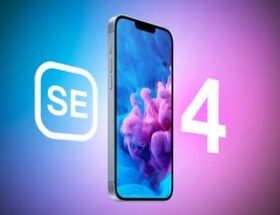Julie Clover
Google today announced the launch of Android XR, an operating system built for extended reality (XR) headsets and smart glasses. Android XR is Google’s equivalent of VisionOS, the operating system that runs on Apple’s Vision Pro headset.

Android XR is designed for the “next generation of computing,” and Google teamed up with Samsung to build the operating system. Google is giving developers a preview of Android XR starting today, allowing them to start building apps and games for upcoming Android XR devices that will compete with the Vision Pro and VR headsets from Meta.
The first headset running Android XR will be developed by Samsung, and is scheduled to launch in 2025. Android XR and the Samsung headset will support full immersion in virtual environments or presence in the real world, similar to how Apple allows users of the Apple Vision Pro to customize the level of immersion in the Vision Pro by turning on or off the view of the real world provided by the cameras. Android XR will include Gemini, Google's AI-powered assistant, and it will offer device controls and insight into what the owner is seeing. Google says Gemini will be able to help users plan, research topics, and get task guidance. YouTube will be viewable on a “virtual big screen,” and Google Photos will support 3D images. Google Maps will get an immersive view, and Chrome will support multiple virtual screens for multitasking.
Google says mobile and tablet apps from Google Play will work with Android XR “out of the box,” with more immersive content built for XR coming in 2025.
As for smart glasses, Android XR will give you one-tap access to Google Gemini. Google plans to test a prototype of glasses running Android XR with a small group of users in the near future.
Tags: Android, Google, Samsung[ 55 comments ]









